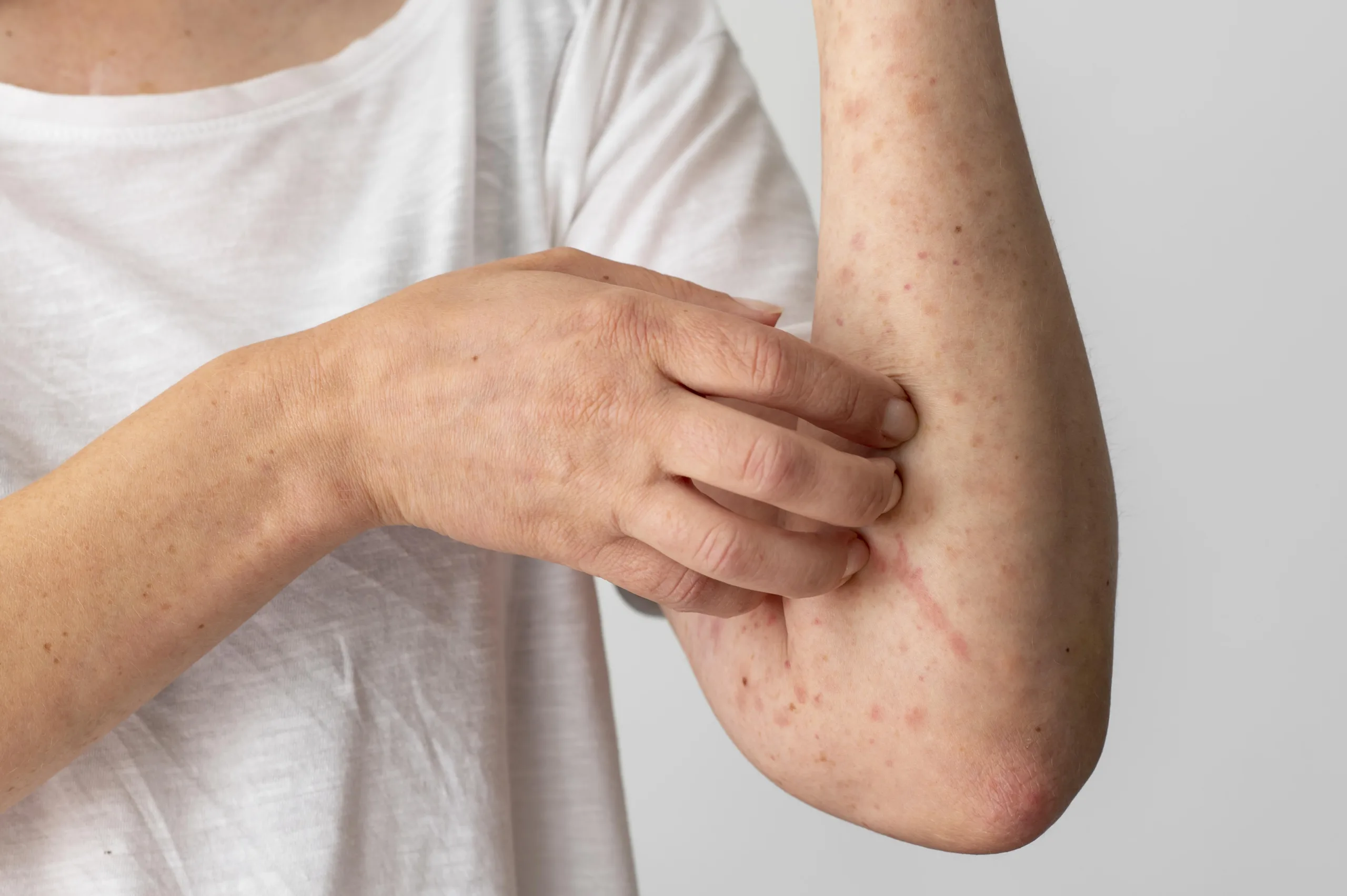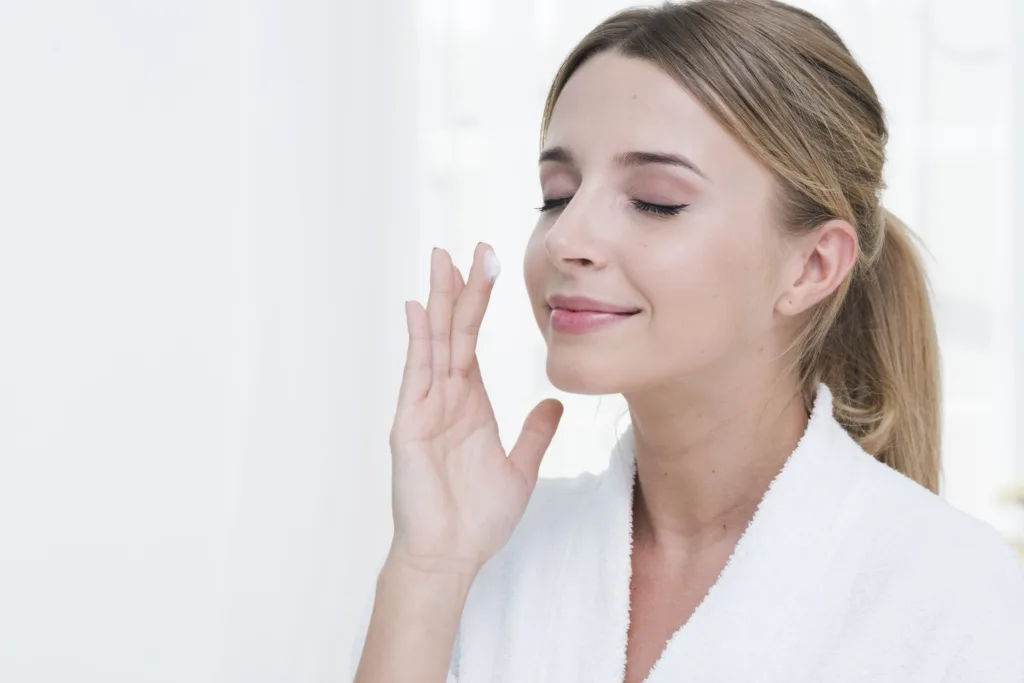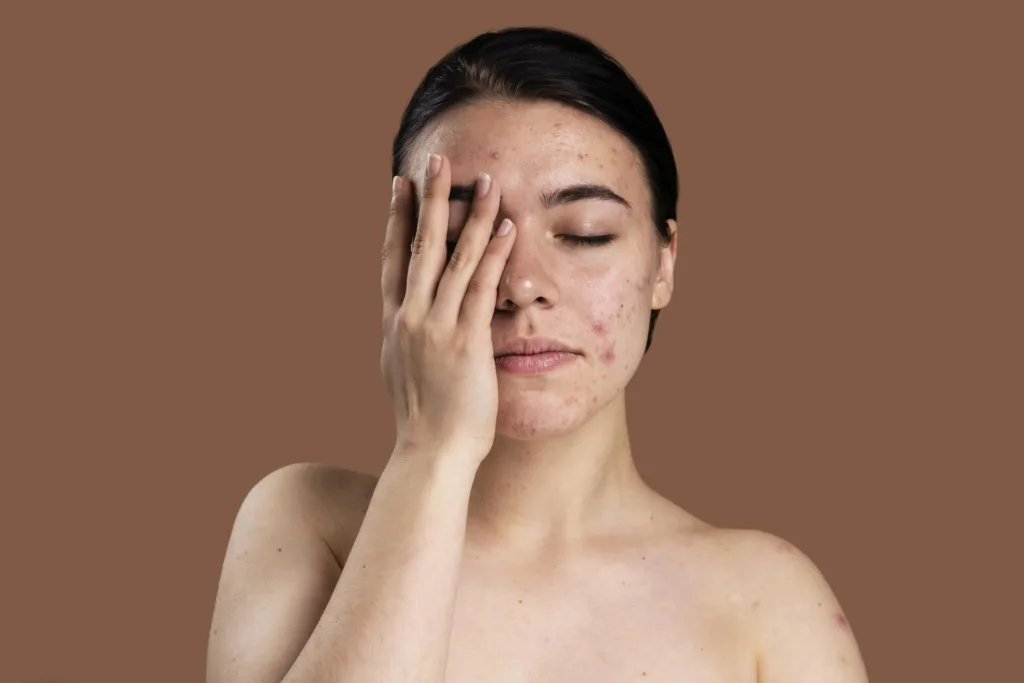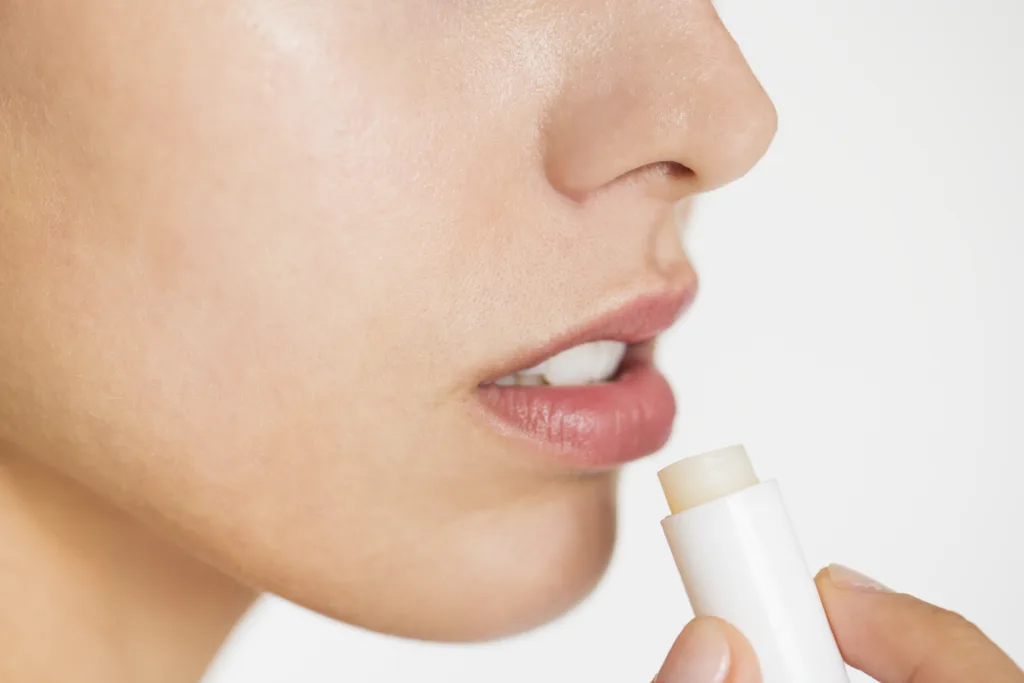Urticaria
Welcome to our comprehensive guide on cholinergic urticaria, a condition that affects many individuals worldwide. We aim is to provide you with in-depth knowledge about cholinergic urticaria to help you better understand, manage, and prevent this troublesome skin condition.
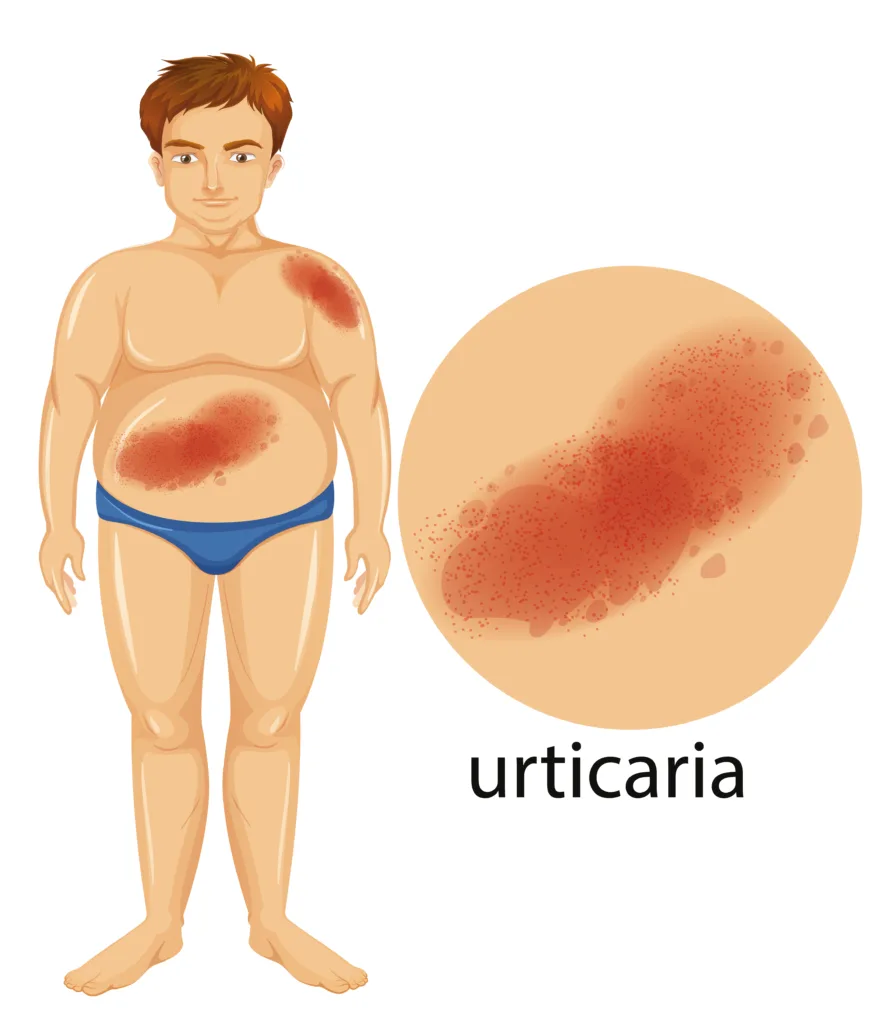
Table of Contents
What is Cholinergic Urticaria?
Cholinergic urticaria also known as heat hives, is a skin condition characterized by itchy hives that increase in body temperature, and sweating. This condition can be uncomfortable and frustrating and negatively impacts the quality of life.
Symptoms and Triggers
The symptoms of this type of urticaria can be seen on the different body parts of small, red, itchy hives. Common triggers for this condition include exercising, taking hot showers, exposure to high temperatures, and emotional stress.
Understanding the Mechanism:
Cholinergic urticaria, also known as heat hives, is a bothersome skin condition that affects many people globally. The cholinergic urticaria lies in a neurotransmitter called acetylcholine. This tiny molecule plays a significant role in various bodily functions, including the regulation of sweating.
The Mast Cell Activation:
When acetylcholine signals the sweat glands to produce sweat, it also inadvertently activates mast cells in the skin. Mast cells are like tiny alarm bells in our body that release histamine and other chemicals when triggered. When mast cells get activated, they release a burst of histamine into the skin, which leads to characteristic itchy hives.
Diagnosis and Medical Evaluation:
The diagnosis usually involves a detailed medical history and physical examination. In some cases, a specialized test called the “sweat test” may be conducted, where the patient is exposed to heat or exercise to provoke hives and observe their appearance.
Treatment Options:
Fortunately, several treatment options can help manage and alleviate the symptoms of cholinergic urticaria. While antihistamines can be beneficial in managing the symptoms of cholinergic urticaria, they may not necessarily eliminate the condition entirely. Identifying and avoiding triggers, making lifestyle changes, and following a comprehensive treatment plan are all essential components of effectively managing cholinergic urticaria and improving your quality of life. When you take an antihistamine, it helps to counteract the effects of histamine, providing relief from the uncomfortable symptoms of cholinergic urticaria. OTC antihistamines like cetirizine, loratadine, and fexofenadine are widely available and can be effective for mild cases of cholinergic urticaria.
Topical Treatments: Calamine lotion or other soothing creams can provide relief to localized hives.
Avoiding Triggers: avoiding such things as hot weather, spicy foods, and stress can help prevent flare-ups.
Beta-Blockers: In some cases, beta-blockers may be prescribed to block the effects of acetylcholine and reduce hives.
Lifestyle Changes and Self-Care:
In addition to medical treatments, incorporating certain lifestyle changes and self-care practices can make a significant difference in managing cholinergic urticaria:
Stay Cool: Avoid overheating by staying in a well-ventilated and air-conditioned environment during hot weather.
Choose Appropriate Clothing: Wear loose, breathable clothing made from natural fibers to help regulate body temperature.
Stress Management: Practice relaxation techniques like yoga, meditation, or deep breathing exercises to reduce stress levels.
Regular Exercise: Engage in moderate exercise regularly to improve overall health and possibly reduce the frequency of hives.
Preventing Cholinergic Urticaria:
While cholinergic urticaria may not always be completely preventable, certain strategies can help reduce its occurrence:
Identify Individual Triggers: Keep a diary to note down activities, foods, or situations that seem to trigger hives. This can help identify specific triggers to avoid.
Monitor Weather Conditions: Stay informed about weather forecasts and avoid spending prolonged periods outdoors in extreme heat.
Maintain a Healthy Lifestyle: In a healthy lifestyle that includes a balanced diet, regular exercise can positively impact overall health and potentially reduce hives.
Conclusion:
At Pharmstudy.co.in, we believe in empowering our readers with accurate and reliable information to improve their well-being.
Credits: Image by Freepik

